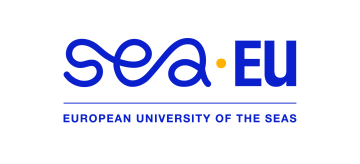Research on oenology issues begins with the doctoral thesis on wine tasting, applying chromatographic techniques that were new at the time. He establishes collaboration agreements with a large number of wineries, tackling problem-solving studies, including several doctoral theses. It obtains funding in competitive calls, which allows it to expand the lines of research in viticulture, as well as achieve scientific infrastructure that allows it to extend the lines of research to the agri-food field in general. It develops analytical methodologies applying very new techniques, such as electronic nose, olfactometers, etc. In the extension of research lines, it studies the compounds of interest in wine remains, as a consequence of this line, it creates a spin-off (LABORATORIOS SKINWINE S.L.) that is dedicated to the elaboration of cosmetic products from the remains of the vinification and aging of sherry wines. Likewise, the remains and finished wine products are reused to make new foods, creating another company (ALIWINE S.L.). As for management, he has been Director of the Andalusian Centre for Viticultural Research (CAIV) since its creation (1999) and is currently Director of the University Institute for Viticultural and Agro-food Research (IVAGRO) since its creation (2016). He is currently President of the Association of Oenological Research Groups (GIENOL) since its creation (2000). He has been coordinator of the Inter-University Doctorate Programme in Oenology, Coordinator of the Inter-University Master/Doctorate in Viticulture in Warm Climates and the Agro-Food Programme. He has been Director of the OTRI. Responsible for a large number of requests for scientific infrastructure with several research groups, achieving a high percentage of approval, so that they have been provided with equipment for common use, both in laboratory instrumentation, as in pilot plants. (ORCID NO. 0000-0001-6255-9449)
- Genomic characterization and study of the properties of different genetic groups of winemaking and aging yeasts responsible for the production of sherry wines and manzanillas
- Molecular cytogenetics of marine organisms
- Study of genetic markers in marine populations for application in wildness and aquaculture
- Molecular study of the mechanisms of pathogenicity of the fungus Botrytis cinerea applications to the integrated control of fungal diseases
- Genetics and genomics
- Gene mapping and integrated gene mapping
- Oenological Microbiology and Sensory Analysis
- Traceability and species identification
- Development of molecular markers for population studies
- Identification of species of marine organisms
- Food traceability.
- Detection of genetic damage in sperm banks
- Cultivation and conservation of microorganisms.
- Detection of phytopathogenic fungi in different cultures using microbiological and molecular techniques.
-- Study of the microorganisms involved in the different processes of making different types of wine.
- Molecular techniques for the study and characterisation of young wines and those subjected to biological ageing.
- Identification and classification of microorganisms related to oenology
- Fast detection of contaminating microorganisms.
- Selection of native yeasts and microvinifications.
- Monitoring of yeast implantation in winemaking.
- Service of conservation and deposit of selected yeasts.
García, E., Cross, I., Portela-Bens, S, Rodríguez, M. E., García-Angulo, A., Molina, B., Cuadrado, Á., Liehr, T., Rebordinos, L.
Scientific Reports (2019) Vol: 9. Pgs: 17146-
2. Advances and challenges in genetic engineering of microalgae.
Fajardo, C., De Donato, M., Carrasc, R., Martínez‐Rodríguez, G., Mancera, J.M., Fernández‐Acero, F.J.
Reviews in Aquaculture 2020. Vol 12: 365-381
Cordero-Bueso, G., Moraga, J., Rios-Carrasco, M., Rios-Muñoz, M., Cantoral, J.M.
Frontiers in Microbiology. January, 2020.
Mtibaà, R., Aranda, E., Pozo, C., Ghariani , B., Moraga, J., Nasri, M., Cantoral, J.M., Garrido, C., Mechichi, T.
Science of the Total Environment. 2020. Volume 708, 15
5. Evolution of the Proto Sex-Chromosome in Solea senegalensis.
Rodríguez, M.E., Molina, B., Merlo, M.A., Arias-Pérez, A., Portela-Bens, S., García-Angulo, A., Cross. I., Liehr, T., Rebordinos, L.
International Journal of Molecular Sciences, 2019, 20: 5111
